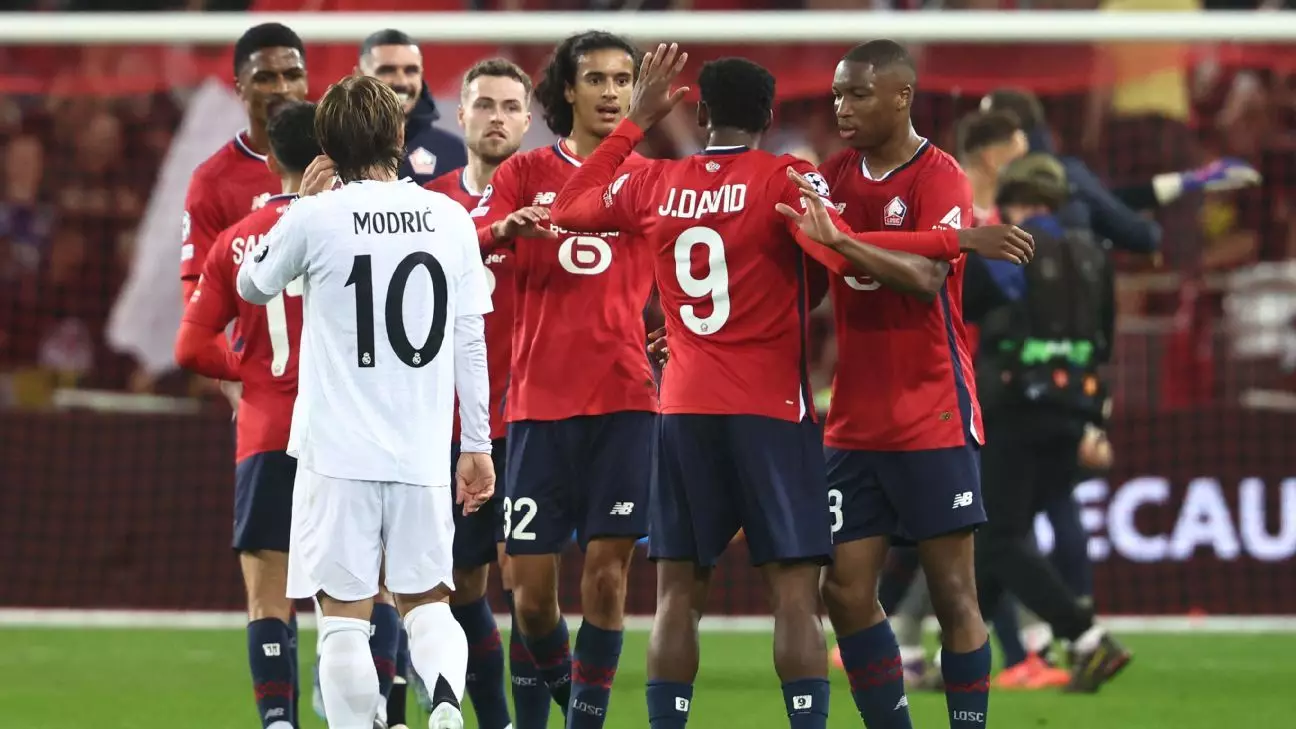Real Madrid’s recent 1-0 loss to Lille in the Champions League served as a sobering reminder of the challenges even the most storied clubs face. Head coach Carlo Ancelotti openly accepted the deserved criticism directed at his team, emphasizing that excuses were unnecessary. The solitary goal scored by Jonathan David, courtesy of a penalty awarded after a handball by Eduardo Camavinga, succinctly underscored the stark difference in performance between the two sides.
During the match, Madrid struggled to find their rhythm, with notable players like Endrick and Vinícius Júnior unable to make significant contributions despite some early chances. The team’s inability to capitalize on opportunities was evident as they failed to convert in crucial moments, with Jude Bellingham and Antonio Rüdiger also coming up short late in the game.
A Notable Lack of Intensity
Ancelotti highlighted the lack of intensity and consistency in his team’s performance. The coach pointed out that Lille outperformed Madrid in almost every aspect of the game, particularly in duels and ball recovery. This lack of aggression from arguably one of the most dominant teams in European football is concerning. It raises questions about the players’ mentality and their readiness to compete against determined opposition.
Goalkeeper Andriy Lunin remarked on the team’s need for a more robust fighting spirit. He suggested that this longing for a more aggressive approach was particularly evident in the second half, where Madrid seemed to regain some momentum, albeit too late to alter the outcome of the match. This observation is crucial; it reveals a disconnect between the expected performance level of a top-tier team and what was actually delivered on the pitch.
With three points after two games in the Champions League group stage and currently languishing in 17th position, it’s clear that Real Madrid must reassess their approach. Ancelotti’s candid acknowledgment of the shortcomings provides a foundation upon which to build. The team must identify specific areas for improvement—speed of play, ball control, and verticality in attacking movements, as noted by Ancelotti.
It is vital for the forwards to receive the ball in a timely manner to maximize their impact. Slow transitions limit scoring opportunities, suffocating the attacking potential of skilled players. Real Madrid is renowned for its attacking prowess, and failing to utilize this effectively jeopardizes their chances of success in this tournament.
Despite the disappointment, there was a glimmer of hope for the Madrid faithful. Youngster Endrick made his Champions League debut, showcasing his potential to be a future star. Breaking Raúl González’s record as the youngest player to start for Madrid in this competition is no small feat. Endrick’s enthusiasm reflects the high stakes of playing for a club with such a rich history and the pressure that comes with it.
Moving forward, Real Madrid must focus on rectifying their shortcomings if they hope to bolster their standing in the group and ultimately compete for the Champions League title. It will require a collective effort, an unwavering commitment to improvement, and perhaps a rekindling of the competitive fire that has characterized their legacy. Only time will tell if they can rise to the challenge and reclaim their dominance on the European stage.

